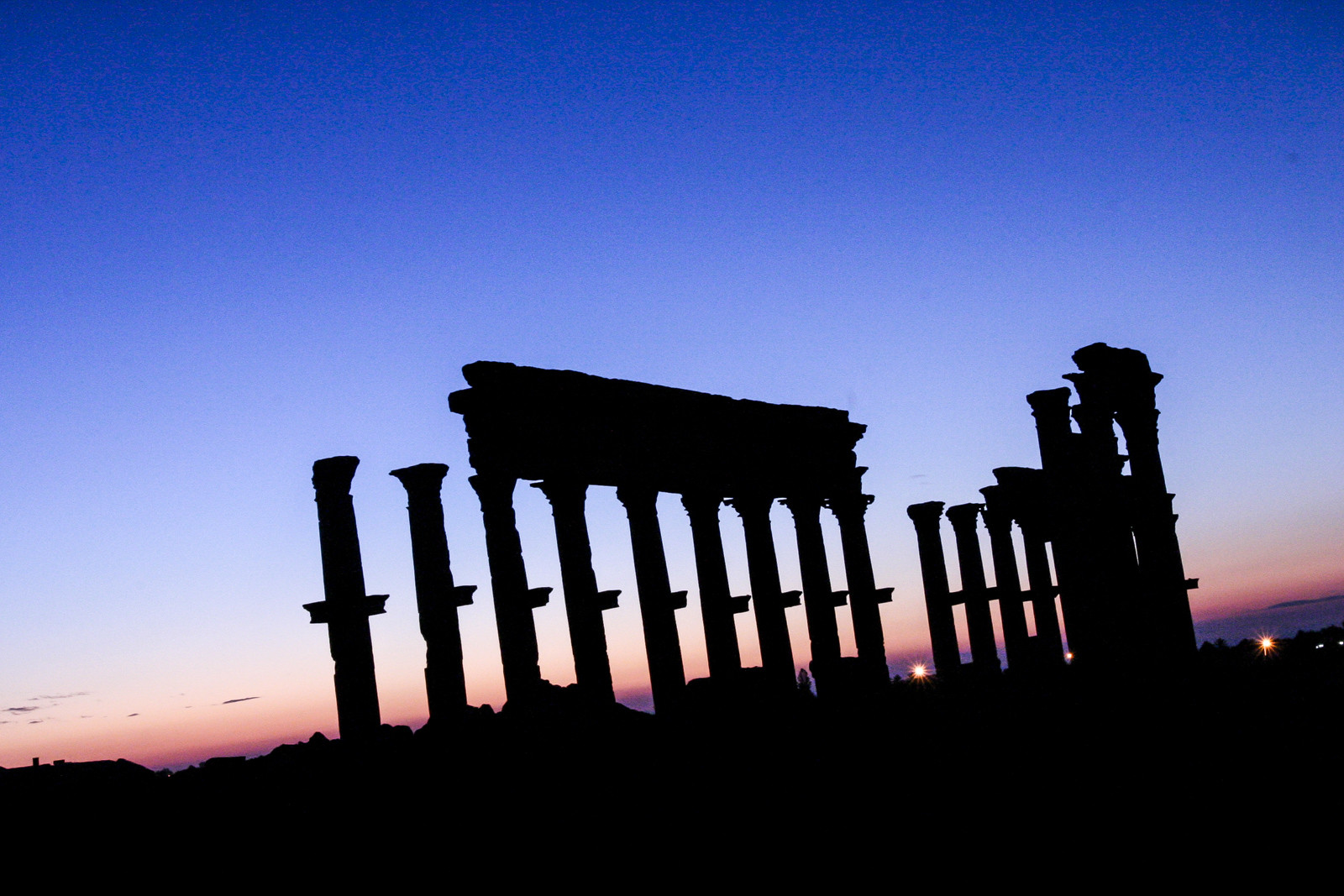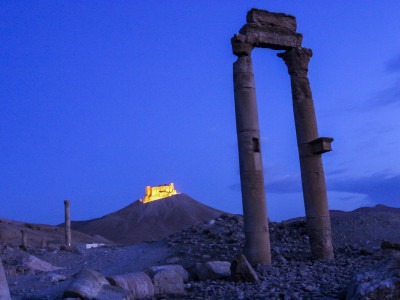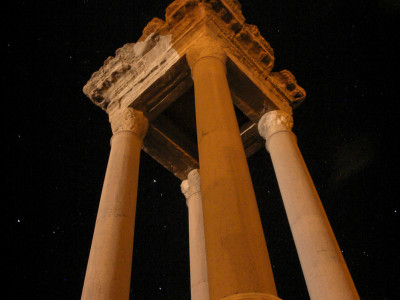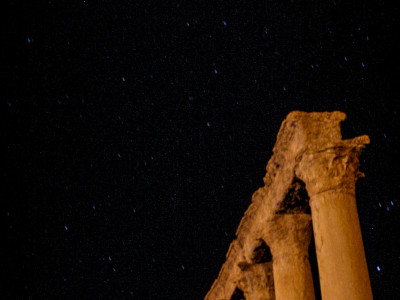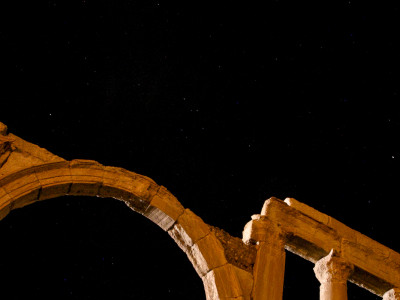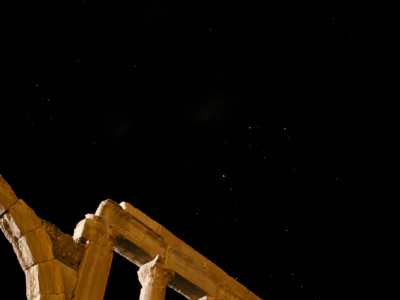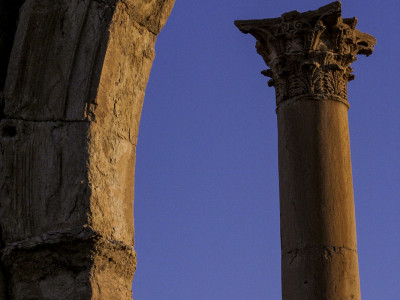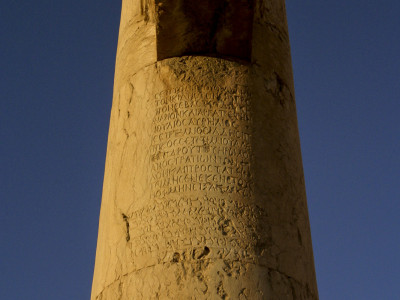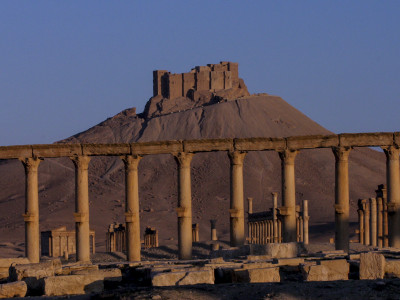The thud of a little girl’s head bouncing off the car’s hood was the wake up call that maybe I shouldn’t be in Syria. Years before civil war and ISIS ravaged the country, I took a risk visiting Syria, where the wrong passport stamp could get you expelled or even jailed. I nearly found out the hard way.
Years ago, I had the good fortune (no irony intended) of visiting Syria. I was living and teaching in the capital of Armenia at the time and Syrian Air had super cheap flights between Yerevan and Syria and Lebanon.
Always up for an adventure and a cheap ticket, my buddy Max and I booked. But before I could go, I needed to resolve a vexing issue: the dozen or so Israeli stamps in my passport.
It’s no secret that most Arab countries dislike Israel. One way they express their displeasure is through denying entry to all Israelis and anyone with Israel stamps in their passport.
Syria, I had heard, would throw you in jail if they found you with the stamp.
Off the top of my head, I can only think of one other conflict with a similar entry prohibition. Azerbaijan will deny admittance if you have a passport stamp or visa from Nagorno-Karabakh, a breakaway Azeri region aligned with Armenia. I’ve been there too – with the dangerous stamp in my passport – but that’s another story.
The US Government recognizes the stamp problem and issues US citizens a 2nd passport that’s valid for two years. Getting the passport was easy but a bigger issue remained.
In order to leave Armenia (and reenter after traveling), I needed my old passport full of Israel stamps and Armenian work-visa. And I needed the new passport to get into Lebanon and Syria.
Was it crazy to take both the fresh and offending passport with me? Definitely, but a necessary risk.
I arrived in Beirut and unnecessarily worried customs would notice I had no previous exit stamp in my fresh passport. I was careful to keep my Israel-stamped passport tucked away and explored Lebanon without problem. The country was beautiful, people friendly and I devoured the non-stop sunrise-be-damned nightlife.
From there we traveled through Lebanon’s Beqaa Valley into Syria. Passing through Syrian border control was smooth sailing despite my passport nervousness.
Similar to Lebanon, the Syrian people were friendly and engaging to talk with. Middle Eastern hospitality is wonderful to experience (sharing tea, pistachios, a nargillah). I definitely met people with paranoid fantasies that Jews (not just Israelis) wanted to take over Syria. One individual even had a handout of old testament quotes in English and Arabic attesting the claim’s truth. Surely some sort of government propaganda.
After spending time in Damascus, we arrived in Palmyra, a city in eastern Syria with Roman ruins set on the edge of town with a medieval castle perched on an overlooking hill.
Palmyra was a prosperous city under many ancient empires, eventually becoming part of the Roman Empire in the 1st century. Its wealth financed grand temples and colonnaded avenues.
The site was worth (and when Syria’s security situation improves, hopefully still worth) a few days of wandering its dusty paths – especially at night, as evident in the below photos.
After we finished exploring the ancient town, our next destination was Aleppo, Syria’s most populous city four-hours away.
Before leaving, we topped off the car’s tank. My friend – we’ll call him Jack – was driving and seconds after pulling out of the gas station, a dark shape darted in front of the car followed by a hollow thud.
He slammed on the brakes but it was too late. Max, Jack and I jumped out of the car and lying on the pavement was a dazed little girl, no older than five or six who’d chased her ball into the street.
Her stunned silence sparked into a shrieking wail as a crowd of people – who only moments ago seemed friendly and happy – surrounded the car. An older woman with a tan hijab scooped up the young girl and the 5 of us: myself, Jack, Max, the older woman and wailing child, packed into the compact four-door car and sped to the hospital.
As we drove, Jack offered the child a few pieces of sugary, hard candy which the older woman pocketed then demanded more.
The hospital was close by and a few minutes later were parked outside the squat building with bleached-white brick walls. We rushed the little girl into the emergency room and a team of nurses laid the child onto a gurney and checked her for injury.
No blood or broken bones, just shaken up.
We were relieved she would be OK and offered to pay any medical expenses.
But that was not enough.
The hospital insisted on filing a police report. In a country like Syria, you wanted to avoid the police at all cost. They weren’t coming to fix the situation but to shake us down for baksheesh aka “tip”. Pay enough, you’re free to go. Refuse at your own peril.
I felt terrible about the accident and wanted to resolve the situation however we could. And with 14 Israel stamps and 2 full-page Israel visas in my passport, I was ready to avoid any escalation.
Jack, fluent in Arabic, waited in the office for the police to arrive.
Then a tall officer with thin mustache and neatly pressed desert-tan uniform arrived.
He went directly to the office while Max and I sat on the hospital sidewalk and waited. I stuffed a $500 wad of bills into my sock just in case we’d need to pay a bribe and left a sacrificial $100 in my money belt.
Inside, Jack talked with the hospital staff and the officer but refused to pay anything.
He’d been studying in Syria as part of an educational grant and wanted no record of the accident. The officer insisted he file a police report, money or not. Jack was worried his future prospects working and researching in Syria would be imperiled if any blemish appeared on his record.
Meanwhile, Max and I sat outside waiting. My stress level boiled higher and higher as I thought about my passport and the repercussions of its discovery.
Minutes ticked by – might have been 5 or an hour, I cannot recall – until Jack walked through the hospital doors into parking lot.
Alone.
He never explained what he said or how he did it, but he managed to extricate us from the situation and get us out of Palmyra without filing a police report or paying a bribe.
And while my passport stayed safe and I made it out of the country without a problem, the ancient city of Palmyra has not been so lucky.
In the past year, the Islamic State conquered Palmyra and the surrounding territory. The group has plundered the site’s antiquities and destroyed many of its structures. They tortured and decapitated Palmyra’s retired chief archaeologist when he refused to reveal the location of the antiquities he’d hidden away.
And ISIS’s campaign of destruction continues. The group recently destroyed Palmyra’s iconic arches (which I photographed years ago at night in the photos below).
It was also reported that ISIS tied 3 men to Palmyra’s ancient pillars (also photographed below years before ISIS’s arrival) and blew up the columns and their bound captives.
It saddens me that others may never be able to experience Palmyra’s ancient buildings and the many other ancient sites throughout the Levant under ISIS’s threat.
But it saddens me most when I think about the little girl who escaped our accident more-or-less unscathed. I wonder where she is today: a slave to the ISIS regime? A displaced refugee far from home? Or worse?
ISIS is truly a conundrum and we owe it to ourselves and to that little girl to work together to find a peaceful solution. Everyone’s future depends upon it.
